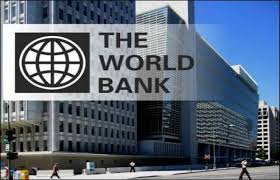The World Bank has approved $430 million to prosecute Nigeria’s digital identity ecosystem project aimed at enhancing the national identity system’s legal and technical safeguards to protect personal data and privacy.
The Bretton Woods Institute also on Wednesday in Washington DC, the United States, approved five other projects for Nigeria aimed at assisting the country to empower citizens, especially marginalised groups, to access welfare-enhancing services.
The World Bank approved the six projects to support Nigeria’s development priorities focused on improving immunisation, providing an enabling business environment for private sector, expanding the digital economy to promote job creation and increasing capacity of public and private sector on governance, social and environmental safeguards.
Shubham Chaudhuri, World Bank Country director for Nigeria, said, “The World Bank is ramping up its support to Nigeria in its efforts to lift 100 million Nigerians out of poverty. These projects are focused on delivering better services to Nigerian citizens.
“This means ensuring that children are immunised and sleep under mosquito net, improving rural mobility with better roads and providing citizens with a unique identification number to be able to better target social safety nets.”
Among the projects approved in the “programme of support in fiscal year 2020” is the Nigeria Digital Identification for Development Project.
A statement by the World Bank explained that the Project “will support the National Identity Management Commission (NIMC) to increase the number of persons who have a national identification number (NIN) reaching about 150 million in the next couple of years.”
According to the World Bank Statement: “This will enable people in Nigeria, especially marginalised groups, to access welfare-enhancing services. The project will also enhance the ID system’s legal and technical safeguards to protect personal data and privacy.
“This is financed through an International Development Association (IDA) credit of $115 million and co-financing of $100 million from the French Agency for Development and $215 million from the European Investment Bank,” the statement added.
Other projects approved and to be covered in the World Bank programme are: Immunisation Plus & Malaria Progress by Accelerating Coverage and Transforming Services (IMPACT) will strengthen health systems to deliver effective primary health care and improve immunisation, malaria control, and child and maternal health in selected states.
Amongst key results, the project aims to improve vaccination coverage, the percentage of children under five who sleep under insecticide treated nets from 28 per cent to 41 per cent and improve the percentage of women who receive post-natal check-ups from 47 per cent to 55 per cent. The project is financed under concessional terms through an IDA credit of $650 million.
Nigeria Rural Access and Agricultural Marketing Project will upgrade rural roads, improve connectivity and access to local markets and agro-business services in 13 states. In particular, the project will upgrade about 1,600 kilometres of rural roads and improve 65 agro-logistics centres.
These interventions are expected to increase by up to 10 per cent the proportion of population who live within two kilometres of an all-season road. The project is financed through an IDA credit of $280 million, co-financing of $230m from the French Development Agency and $65m from the Government of Nigeria.
Ogun State Economic Transformation Project will catalyse private investment in the state by improving the business-enabling environment, strengthening agri-food value-chains and upgrading skills.
Amongst some of the key results, the project will support the issuance of 15,000 Certificates of Occupancy, facilitate off-taker arrangements with agribusinesses for up to 40,000 farmers and improve STEM teaching in up to 70 per cent of public secondary schools. This is financed through an IDA credit of $250 million.
Innovation Development and Effectiveness in the Acquisition of Skills Project will strengthen the skills of 50,000 Nigerian students and enhance the capacity of technical teachers to better equip them for jobs in the formal and informal sectors.
The project will increase female enrolment rate from 13 per cent to 23 per cent in technical colleges and provide recognised skills and certification to 3,000 youth after completing an informal apprenticeship. This is financed through an IDA credit of $200 million.
Sustainable Procurement, Environmental and Social Standards Enhancement Project (SPESSE) will strengthen capacity in managing procurement, environmental and social standards in the public and private sectors. The project will enhance the skills of 21,240 persons and facilitate certification of 4,000 practitioners in procurement, environment and social standards.
It will also ensure that accredited degree programs meet International Best Practice and Good International Industry Practice (GIIP) in these areas. This is financed through an IDA credit of $80 million.
The World Bank’s International Development Association (IDA), established in 1960 to help the world’s poorest countries by providing grants and low to zero-interest loans for projects and programs that boost economic growth, reduce poverty, and improve poor people’s lives.
IDA is one of the largest sources of assistance for the world’s 75 poorest countries, 39 of which are in Africa. Resources from IDA bring positive change to the 1.6 billion people who live in IDA countries. Since 1960, IDA has supported development work in 113 countries. Annual commitments have averaged about $21 billion over the last three years, with about 61 percent going to Africa.


